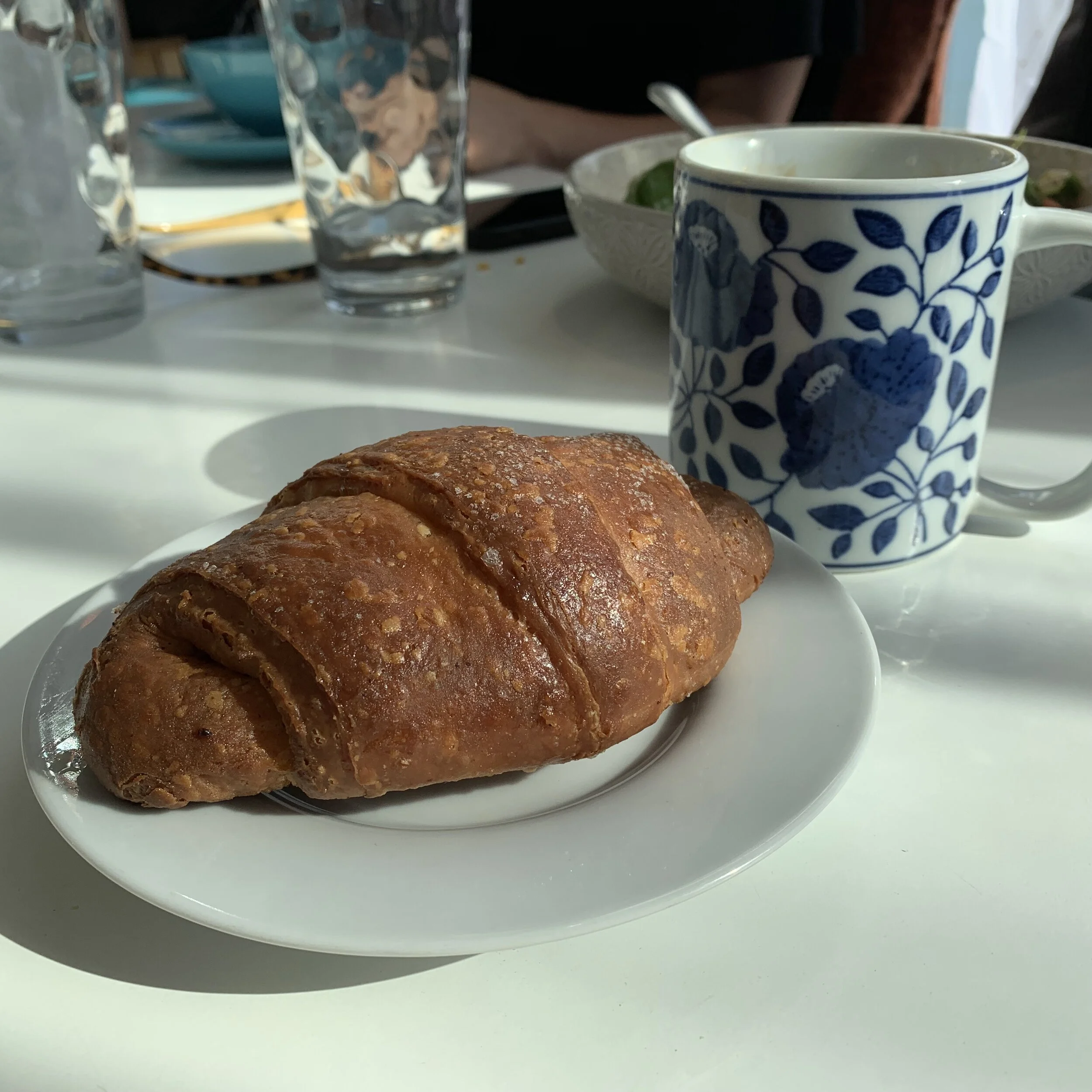PLANT-POWERED TOURING 1: Plant Power 101
by Emerald Rae
Welcome to the future of sustainable travel! Going veggie is easier than ever and is an effective way to drastically cut down your carbon footprint and keep your energy up on the road. I have been touring-as-vegan for 4 years and wrote this guide to answer some common questions I encounter in my travels.
Here’s a quick overview of plant-based life to get you started. Feel free to ask me questions at emerald@emeraldrae.com. Photo above: Vegan croissant in Montreal.
Why Should You Eat Plant-Based?
Eating a plant-based diet completely changes your relationship to food. You get to chow down on foods that actively keep you healthy, make you feel better and give you tons of energy to sustain the long drives, sleepless nights and wild partying.... oh, and yes, playing music. During this blog series, I’ll show you all the delicious and healthy food that will be readily available on your way. It’s easy to get tired and make bad decisions. So it’s important to build good habits and form a game plan.
People are always asking me what it’s like to live the vegan “lifestyle.” Well, I can tell you that it’s not a “lifestyle.” It’s just a “foodstyle.” It doesn’t take over my whole life or my whole day and I am not constantly schlepping bags of food around to survive. I feel energized and healthy and excited about life. It cuts down the menu, so I don’t have to read the whole thing. In many, many ways it makes my life much easier.
Just a little backstory — it took me at least 5 years to go fully vegan. I slowly cut out chicken, then beef, then dairy, etc. I hung onto fish for a while longer, because I grew up in a fishing community. I went on several month-long vegan challenges, which I highly recommend to get your feet wet. My last vegan challenge was a full calendar year of strict veganism (no leather, no wool, no nothing), and at the end I decided to be Mostly Vegan and accept occasional bits of honey, leather and oysters into my life.
Here’s a list of the different varieties of plant-based diets to cater to your lifestyle, desires and needs.
TYPES OF PLANT-BASED DIETS
Strict Vegan: No animal products, foods, or clothing of any kind, ever.
Mostly Vegan: 99% Vegan with occasional honey, eggs, leather, oysters, etc.
Vegetarian: No meat, but regularly enjoys eggs and dairy
Pescatarian: No meat, but regularly enjoys fish, eggs, and dairy
Flexitarian: Commitment-phobes
How To Stop Worrying About Food
When I first decided to take the big year-long strict vegan challenge, I was a little nervous about what was going to happen. I wasn’t worried about faltering in my quest. Honestly, I was more worried that my stubbornness was going to cause a health issue while on tour. It turned out that I didn’t need to worry at all. Within days, I realized that the people who were charged to feed me—presenters, hosts—were WAY more worried than I was. They would often overbuy and send me on my way with an extra bag of food. This would come in handy if there were any gaps in the day, but most of the time I found I was trying to pawn it off on the rest of the band, with varying degrees of success. I eventually started politely declining anything that I didn’t have a specific plan for. There will always be something you can eat — even the greasiest of greasy-spoon diners will have oatmeal.
The key to quelling commitment fears is to stop thinking about your diet as a strict “forever” commitment. The more you slowly cut back on animal products, the less you will crave them. It’s better to let the process happen naturally, for the sake of your own sanity. You can enjoy vegan food and vegan meals and vegan nights and not stress over feeling like a failure if you buy the wrong crackers at the gas station or get stuck at an afterparty that only has meat and cheese on the table. You need to eat, so just do it. When you’re traveling and overtired, it’s better to keep your energy up and continue the veggie fight another day.
Next Up: Myth-Busting
